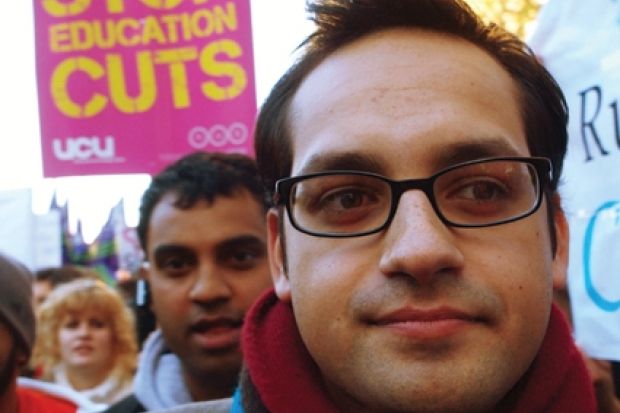In an open letter to Simon Hughes, who is also deputy leader of the Liberal Democrats, Aaron Porter says that one of the first steps the government must take is to “urgently” clarify its proposals for a national scholarship programme.
“On the weekend before the fees vote, the government was claiming that pupils on free school meals would get a free first year at university,” Mr Porter writes.
“Now the government has dropped that commitment – arguing instead that the scheme should consist of different packages, bid for by universities.”
He claims this approach would lead to a “postcode lottery” for financial aid and says that “being clear about which students are now eligible for this support is imperative”.
The NUS president also asks Mr Hughes, who abstained in the fees vote, to ensure that the government’s claim that the £9,000 fee cap will apply only in “exceptional circumstances” is upheld.
He says that the NUS is “finding it hard” to get clarification on the matter.
Among his other demands is that Mr Hughes “insists” that the Aimhigher programme be reinstated after David Willetts, the universities and science minister, announced in November that funding for the widening access scheme would stop from April.
Mr Porter says the programme has made a “massive difference to aspiration to apply to university across the country”.
As well as putting pressure on Mr Hughes, whose appointment as access champion was announced last month, Mr Porter also takes aim at the higher education sector, which he says must “get its act together” on widening access.
He argues that a “massive difference” could be made if universities were judged not only on the number of applications they receive from the poorest students, but also on acceptances and completions as well as the achievements of those students.
Register to continue
Why register?
- Registration is free and only takes a moment
- Once registered, you can read 3 articles a month
- Sign up for our newsletter
Subscribe
Or subscribe for unlimited access to:
- Unlimited access to news, views, insights & reviews
- Digital editions
- Digital access to THE’s university and college rankings analysis
Already registered or a current subscriber? Login
